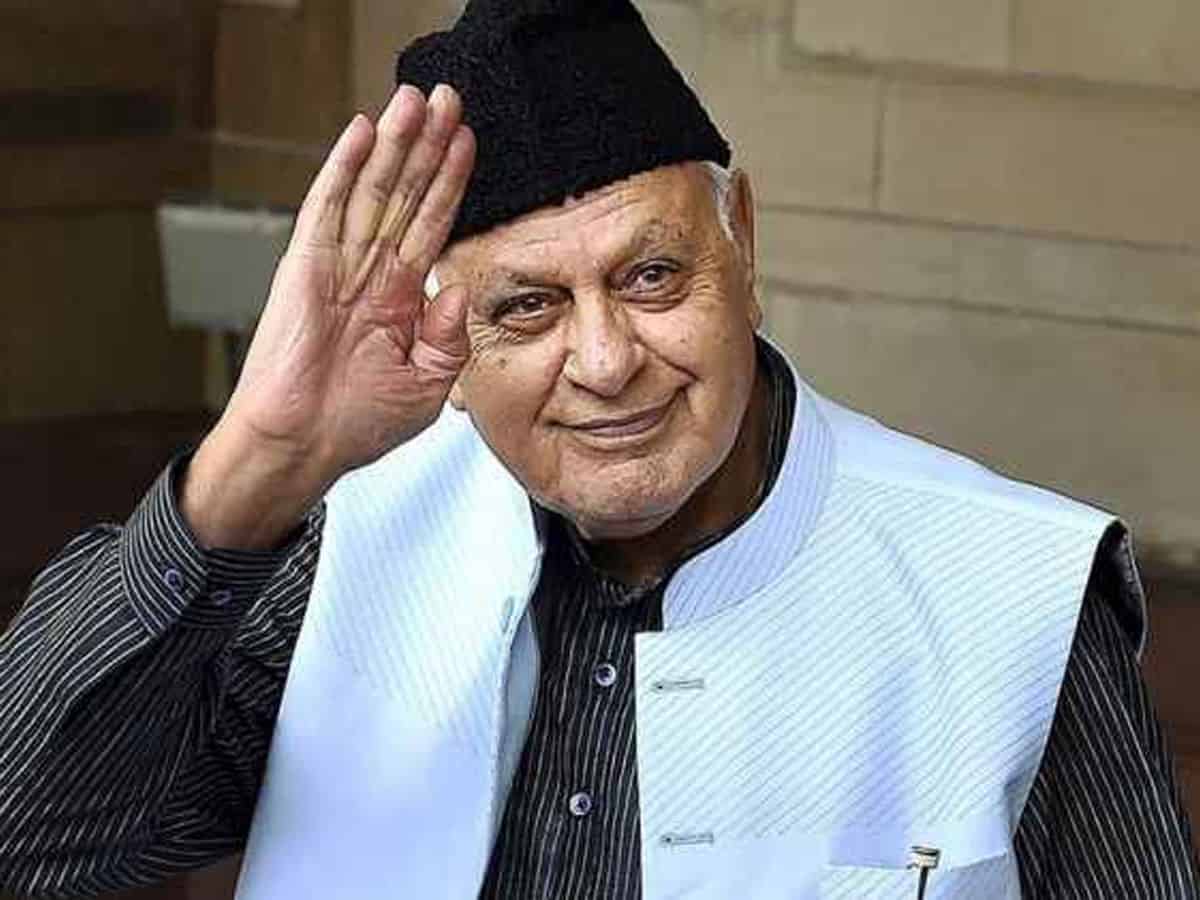
The clock turned full circle in Kashmir politics on Monday when Farooq Abdullah was reelected as National Conference president, burying all speculations as to who his successor would be. These speculations had gained intensity after he asked his partymen to elect a new president on December 5.
His November 18 announcement that the party should elect a new president on December 5, the birth anniversary of NC’s founder Sheikh Mohammad Abdullah. In ordinary circumstances, this development could have been dismissed as something like an internal affair of the grand old party of Kashmir, but in the current times, it has both national and international implications, as the party, despite its image as a regional political grouping, has always defined Kashmir politics for the Indian nation both in positive and negative ways. Therefore, its president has its own importance.
Farooq Abdullah whose tryst with politics began in the last quarter of the 20th century, is also the most recognizable political face of Kashmir within the country and abroad. He represented and pleaded India’s case on human rights in Kashmir at Geneva and other world capitals. At the same time, Farooq attempted to become the face of Kashmir’s unique political identity after he came back to power in 1996 by pitching for the restoration of greater autonomy to Jammu and Kashmir and then getting an autonomy resolution passed in the state legislature in 2000. He symbolizes political contradictions.
There is a need to look at his reelection beyond the prism of his party and Kashmir. There is a message for the nation to grasp. He has embedded a challenge to the abrogation of Article 370 in his political thesis since August 5, 2019, and a forceful voice against what he calls BJP’s onslaught on the identity and dignity of Jammu and Kashmir, but at the same time, he was the one who unfurled the national tricolour at his residence at Gupkar road in Srinagar on the Independence Day – August 15. There was a loud and clear message that the “struggle” the People’s Alliance for Gupkar Declaration for restoration of Article 370 was not anti-India, the premise being that the article that existed in the Indian constitution for nearly 70 years, temporary or otherwise, could not be an anti-India provision. This also served as a reminder to the nation that “Delhi se duri, and dil ki duri” – the distances between hearts ( of Kashmir and the rest of the nation ) could be served by understanding the people, their psyche, and a warning that the make-believe theories cannot be an alternate to the aspirations of the people of Kashmir.
In less than three weeks since November 18, a new realization dawned on most Kashmiris that how important it was for them to have a leader who could be their face in standing up to Delhi. Standing up to Delhi has different connotations beyond the assertion of unique demographic and political identity which is caught in the crosshairs of conflicting versions of history. That is how to keep the hopes of Kashmiris alive that there would be no onslaught on their land, political identity. Herein lies an irony – Kashmir loves its projection as conflict zone which is always looking for ever new concessions as an acknowledgement of its unique identity.
Now with the abrogation of Article 370 that snapped at the special status of Jammu and Kashmir, and the immediate follow up action of its split into two union territories – Ladakh and J&K, the identity issue has become more important than ever before. Not only the National Conference or PDP voiced concerns about the identity and dignity, the middle-path parties, especially the Jammu and Kashmir Apni Party of Syed Mohammad Altaf Bukhari, have made it categorically clear that for them Kashmiri identity comes first.
Through their expressions, all these parties have been urging Delhi not to tamper with the originality of the place. It is a polite plea that doesn’t move beyond a point, as the simmering discontent is waiting to boil over. This narrative sits in contrast to the BJP’s assertion that everything is fine in Jammu and Kashmir as the land and the people are fully integrated into the idea of India, like never before. The premise being that full throttled anti-terrorism operations have sent a clear message that the era of guns and bombs is over, and hard strike at the ecosystem of terrorism has changed the discourse from conflict to conciliation. This assertion is reflected in the optics in which Kashmir is witnessing infrastructural development, arrival of tourists and unhindered access to workplaces and schools . But, Kashmiri leaders , some in Jammu, too, have started asking, if Indianness is so complete in J&K then why the basic democratic essence of assembly elections is being denied to them. These questions continue, if the elections in other states and UTs can be held after every five years, why J&K is not being treated at par with them. Convincing answers are not available. This should be understood that Centre has to live up to its own promises to ensure early elections . Today, when the delimitation commission report is available and the exercise of summary revision of electoral rolls too is over, why should the assembly elections not be held?



